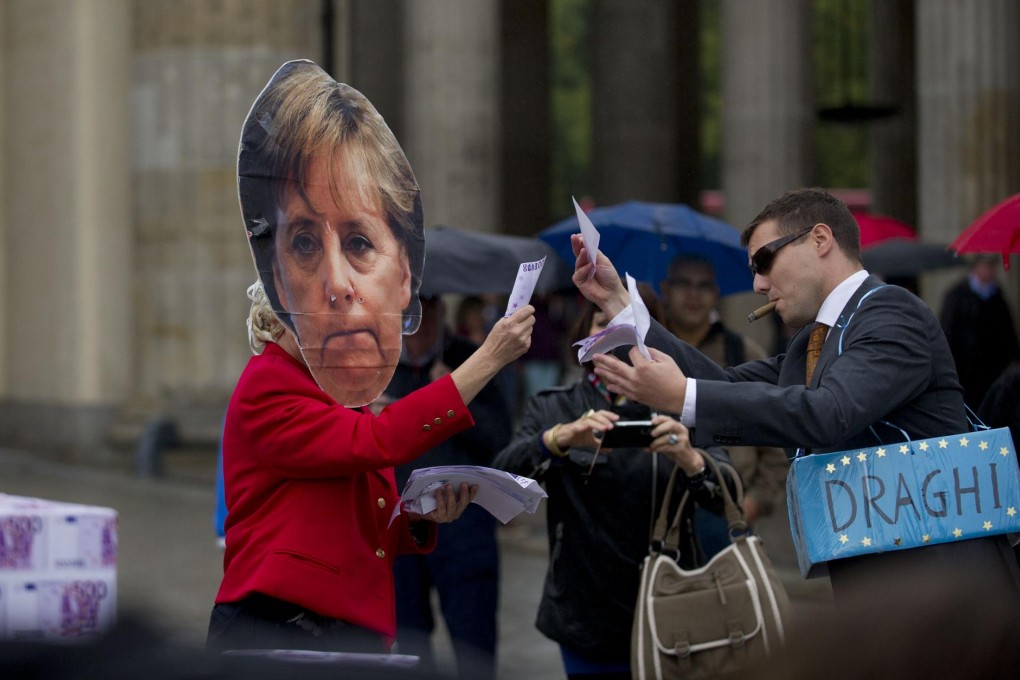Anti-euro party gains clout ahead of German polls
Fledgling group given a decent chance of winning seats in parliament and upsetting chancellor's plans for coalition and ending currency mess

Europe has barely been mentioned in the German election campaign. But in the final days before today's vote, a fringe party that wants to scrap the euro has gained in the polls.

Chancellor Angela Merkel's Christian Democrats are expected to emerge victorious in the election, but polls give the upstart party Alternative for Germany a decent chance of winning seats in parliament for the first time. Its surprising strength could have an outsize effect on the shape of the next German government and could help determine how far it can go in satisfying the desire among its European Union partners for more forceful steps to end the bloc's economic crisis.
A small but committed minority of Germans see the party as the only alternative to mainstream parties too timid to admit that the euro has failed. And the party has also offered a home to more socially conservative Germans who are unhappy with the way Merkel has pushed the conservative bloc to the centre on social issues like gay rights.
In recent days, there has been a sense of euphoria among Alternative for Germany's supporters about its chances of winning a share of power. "I am convinced they will get into the Bundestag," said Ingrid Cook, 63, who lives in Bad Pyrmont, northwestern Germany, and translates technical machinery manuals.
The party is poised to drain votes from Merkel's party and its junior partner in government, the Free Democratic Party - enough, perhaps, to prevent the Free Democrats from reaching the 5 per cent of the national vote needed to return to Parliament. Such a result would force Merkel into an awkward coalition with her main opponents, the centre-left Social Democrats.
Alternative for Germany was at 4 per cent, below the 5 per cent threshold needed to win seats, according to a poll of 2,047 people last week. It gave no margin of error.